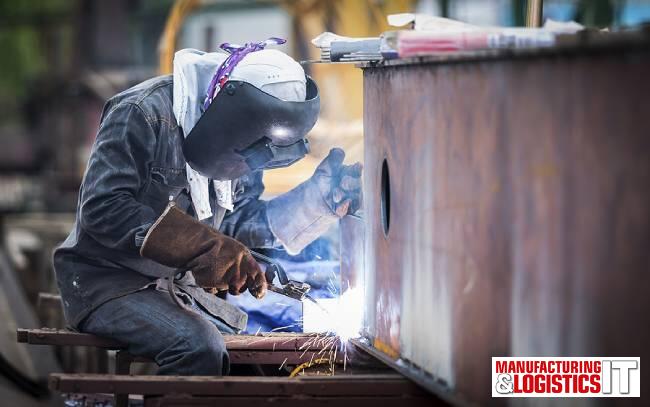
By Alex Edwards, Head of Communications EU, Protolabs.
It’s fair to say that the past five years have stress-tested the UK manufacturing sector. Not only have manufacturers had to deal with a global pandemic, but they’ve also faced geopolitical uncertainty, a cost of living crisis and the after effects of Brexit.
Our recent report: How Five Years Shaped the Future of UK Manufacturing, produced in conjunction with the Institution of Mechanical Engineers (IMechE), shows that despite these challenges, UK manufacturers have not only survived but thrived. In fact, many of them now have much greater confidence in the way that they operate.

The study combines the findings of five annual surveys with engineers, to identify how attitudes, working practices and priorities evolved between 2019-2023. It highlights areas in which changes have been most notable, including the increasing adoption of digital tools and methodologies, how businesses are tackling skills shortages and where companies are investing in their people.
The role of R&D and innovation
Many manufacturers learned that speed of response was essential during the pandemic. However, this pace has since become the norm, and embedded within how companies operate. There’s a recognition that a sense of urgency and an ability to act fast needs to be maintained, in order to retain a competitive advantage.
This desire to develop new ideas and products at speed was clear from the results within the report – although its position as a priority has changed over time. Service or product development topped the list of areas for investment among UK manufacturers in 2019 and 2020, but slipped to second place by 2023. Similarly, innovation was the second highest investment priority in 2019 and 2020 – but dropped to third place by 2023.
Manufacturers have also invested significantly in research and development over the last few years. This remained at or near the top of the list of priorities between 2019 and 2022. However by 2023, it had fallen to third on the list.
Though it’s clear that manufacturers recognised the need to constantly change and innovate during this challenging period, with more stability now achieved, their attention has shifted to other areas of their business.
Adoption of new digital tools and practices
Technology has become key to enabling manufacturers to boost their productivity and efficiency. And while organisations were less aware and skilled in how to use digital tools to their advantage a few years ago, they now feel more confident in leveraging digital practices and automation to remain competitive on a global scale.
Two-thirds (65%) of manufacturers in the report said they feel ‘very prepared’ or ‘prepared’ to adopt Industry 4.0 practices and digital processes in 2023. This was a three-fold increase on answers given by respondents in 2019.
While progress has been relatively slow, there also appears to be a rise in the number of businesses adopting some form of automation. In 2023, half (49.5%) claimed that between 25-50% of their business was now automated – which was almost double the figure from previous years.
Bridging the skills gap
The skills gap in manufacturing has been well publicised, with the sector continuing to face labour shortages and high turnover rates. Unless it is resolved, the lack of skilled labour could be a major factor in derailing the future success of the UK manufacturing industry. However, manufacturers are beginning to give this issue the level of attention it requires.
Whereas previously, manufacturers simply highlighted that their labour force lacked the right skills and not enough new talent was entering the industry, they are now taking proactive steps to resolve this challenge. For the first time, ‘greater focus and investment in STEM talent’ rose to the top of the list of priorities for manufacturers in 2023.
Part of solving the skills crisis, however, also involves training existing teams to work with digital manufacturing technologies. Encouragingly, manufacturers are showing more belief in their ability to do this. In 2019, 70% of manufacturers said a ‘lack of expertise’ was the greatest challenge they faced when adopting digital manufacturing. This figure has now fallen to just 33%.
A brighter future ahead?
Our report with IMechE covers one of the most disruptive periods ever faced by UK manufacturing – and the last five years have shown us that, as a manufacturing business, you simply cannot stand still.
However, our findings also show evidence of change and progress in terms of attitudes towards innovation, skills and automation.
Speed of response has become the new standard – from concept, through prototyping and testing to final production. And, the pace at which the industry is moving towards digital manufacturing is beginning to increase. There is also a growing recognition that, while the industry does need more people with STEM qualifications, there’s a huge opportunity to upskill the existing workforce.
The next five years won’t be without their own challenges, and UK manufacturing must continue to work hard to secure its future and keep pace with markets such as the US, China and India. But, lessons have been learned and we see real optimism in the sector, and a genuine desire to do things better.


